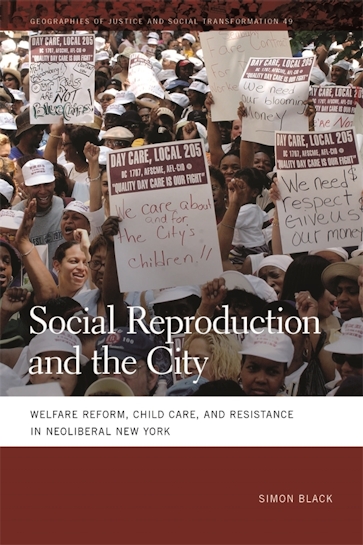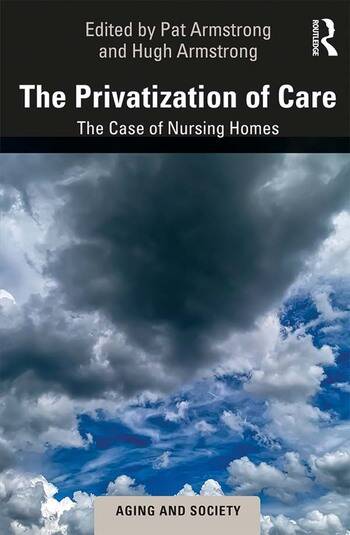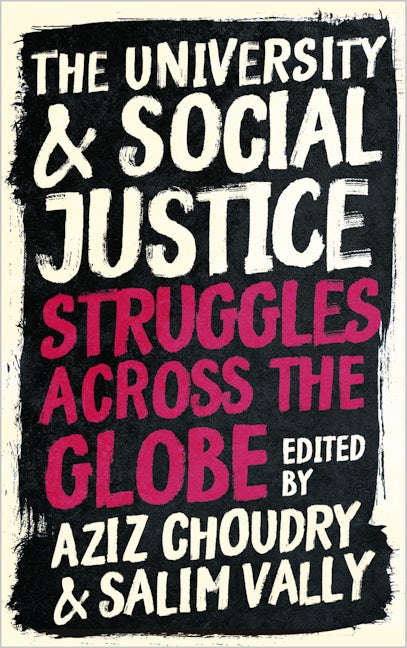Chan, Jenny, Mark Selden and Pun Ngai. 2020. Dying
for an iPhone: Apple, Foxconn, and the Lives of China’s Workers. London: Pluto
Press & Chicago, IL: Haymarket
Books.
Dying
for an iPhone: Apple, Foxconn, and the Lives of China’s Workers
Authors: Jenny CHAN, Mark SELDEN
and PUN Ngai
© 2020
Pluto Press (June 2020)
Paperback ISBN: 9780745341293
Hardcover ISBN: 9780745341286
eBook ISBN: 9781786806277
Haymarket Books (August 2020)
HARDBACK ISBN: 9781642592252
EBOOK ISBN: 9781642592047
PAPERBACK ISBN: 9781642591248
‘Holding
a sleek new iPhone in our hands it is difficult to imagine the brutal work
lives of the people who assemble our smartphones. In Dying for an iPhone
Jenny Chan, Mark Selden, and Pun Ngai make this reality visible. Drawing on
in-depth field work and a deep knowledge of the global electronics industry,
the authors demonstrate not only the steep human cost of our love affair with
smartphones, but also the fierce struggles by Chinese workers to improve their
working conditions.’
—Nicole
Aschoff, author of The Smartphone Society: Technology, Power, and Resistance
in the New Gilded Age
‘Dying
for an iPhone is far and away the most comprehensive account of the lives
and working conditions of the people who produce what is perhaps the iconic
commodity of the 21st century—the iPhone. But it is much more than that. We
also see how Apple and Foxconn, working within a neoliberal trade regime
promoted by the US, Taiwanese, and Chinese governments alike, transcended
national boundaries to develop a brutally exploitative system of labor
discipline. It is an incisive account of the social dislocation, but also the
resistance, wrought when capitalists of many nations unite against workers.
Global in outlook while still presenting fine-grained and highly engaging accounts
of workers’ lived experiences, this book is a shining example of public
scholarship.’
—Eli
Friedman, co-editor of China on Strike
'Dying
for an iPhone is an absolutely necessary read for anyone seeking to
understand the realities of modern-day capitalism. Contrary to the mythology of
Silicon Valley, this carefully researched book explains why companies like
Apple owe their success more to exploitation than to innovation'
— Wendy Liu, author of 'Abolish
Silicon Valley: How to Liberate Technology from Capitalism'
‘Dying for an iPhone takes
readers deep inside the dark Satanic mills of Foxconn’s industrial empire.
Drawing on the words of the workers themselves, the book offers an invaluable
portrait of the Chinese working class as it pumps blood (sometimes literally)
into the productive heart of world capitalism’
— Ben Tarnoff, co-founder of Logic
Magazine
'Critical,
accessible, and rigorously researched, this book offers the most comprehensive
analysis of Foxconn, the world's largest electronics factory: its bleak
landscape, dire consequences, and inspiring efforts to change it for the
better'
— Jack Linchuan Qiu, author of 'Goodbye
iSlave: A Manifesto for Digital Abolition'
'A
sobering investigation into the human, social and environmental costs of
producing the devices we have come to rely on, a process in which both
corporations and we, the consumers, are complicit'
— Nick Holdstock, author of 'Chasing
the Chinese Dream'
‘A deep dive into exploitation and labour
struggle in the world of high-tech electronics manufacturing in China during
the past decade. Dying for an iPhone exposes the human suffering behind
the brands. Everyone should read this.’
— Hsiao-Hung Pai, Taiwanese journalist
‘When reading chapters describing the
assembly line experience of workers, and the scientific management system, I
could only compare it to the chapter in Marx’s Capital, when we are
taken into the hidden abode of production. Dying for an iPhone is
truly a great achievement to present such incisive description and analysis in
a highly readable and accessible form.’
— Jeffery Hermanson, International Union
Educational League
‘The runaway success of products like iPhones and iPads have made Apple one
of the most preeminent tech firms of the twenty-first century. Yet much of the
company
’s profitability depends on cheap labor
to assemble its products, and the Taiwanese company Foxconn is among their
chief suppliers. Chan, Selden, and Pun draw on financial reports, news media,
and interviews with Foxconn workers to examine the true cost of the gadgets so
many Americans carry in their pockets and purses. As the Chinese government
resists enacting or enforcing worker protections, Foxconn employees are forced
to work grueling hours at low pay, under conditions that threaten their mental
and physical health. Although Apple touts its commitment to ethical business
practices, it continues to permit Foxconn to bust unions, set unrealistic work
and quality quotas, and take advantage of vulnerable workers through
exploitative contracts and
“internship
” programs.
Dying for an iPhone balances heartbreaking
worker interviews with carefully compiled employment and financial data from
Apple and Foxconn to present a compelling case against the tech giant and its
suppliers.’
—
Jenny Hamilton, Booklist
‘Dying
for an iPhone is deeply researched, comprehensively annotated and
fuelled by anger. The globalised system, in which corporations subcontract
responsibility alongside manufacturing, leaves enormous gaps in accountability
and justice.’
— Mike
Cormack, The South China Morning Post, 30 April 2020 https://www.scmp.com/magazines/post-magazine/books/article/3082307/dying-iphone-investigating-apple-foxconn-and-brutal
‘Dying for an iPhone, by
sociologists Jenny Chan, Mark Selden and Pun Ngai, tackles head-on the
unsavoury practices associated in the Chinese factories that produce Apple’s bestselling product.’
—
Oliver Farry, The Irish Times, 24 May 2020
‘A damning indictment of Apple’s labor and supply practices.
Chan, Selden, and Pun persuasively argue that the relationship between Apple
and shadowy Chinese manufacturing giant Foxconn epitomizes the brutality of
globalized late-stage capitalism. “In summer 2010,” write the authors, “we
collaborated with researchers from China, Taiwan, and Hong Kong to conduct
undercover research at Foxconn’s major manufacturing sites....Our effort to
engage the corporations in discussion of labor responsibility produced only
corporate rationalizations and platitudes.” The authors investigate Foxconn’s
aggressive rise, propelled by mysterious CEO Terry Gou, seemingly determined to
create a Maoist workers’ cult complete with slogans and surveillance. Still,
“while Foxconn carved out a niche as the exclusive final assembler of the
iPhone, the lion’s share of the profits was captured by Apple.” The authors
merge deep dives into data with chilling testimonials from workers, including
some who attempted suicide. “All of us log long hours of overtime with only two
rest days in the entire month,” said one worker regarding the demands for iPad
production. Due to such pressures, “fire hazards and metallic dust explosions
had put workers’ lives at severe risk, with Apple complicit along with its
supplier network.” Although their focus is the corrosive effect of Foxconn on
China’s labor market, the authors address subtopics including exploitative
internship programs, environmental issues, and workers’ efforts to organize for
better treatment, opposed by the company and the government. This contrasts
uncomfortably with Apple’s hip, progressive public image. “We can speak of a
veritable cult of Apple,” write the authors, “with tens of thousands of
consumers tracking each corporate unveiling of a new design.” Although their
tone is dry, they harness disturbing and varied evidence, including anecdotes,
corporate communications, and first-person accounts, creating a compelling
exposé of what lies behind one of the most recognizable icons of consumerism.
A valuable contribution to an overdue discussion about technology and
privilege.’
— Kirkus Reviews, 2 June 2020
https://www.kirkusreviews.com/book-reviews/jenny-chan/dying-for-an-iphone/
‘China’s workers unionise and
militate for better conditions.’
—
Steve Hanson, Manchester Review of Books, 5 June 2020
‘While the book tells the story of the strategic exploitation of a
million-strong workforce, at its heart are the individual struggles of the
workers themselves, conveyed in their lyrics, poetry and statements. “Each
screw turns diligently / but they can’t turn around our future”, writes one.
Apple’s CEO, Tim Cook, has said that his mission, and that of the company, is
“to serve humanity”; Dying for an iPhone calls into question
that aim and the ethics of our globalized economy as a whole.’ — Emily Kenway,
The Times Literary Supplement
(TLS), 17 July 2020 (No. 6120)
https://www.the-tls.co.uk/articles/dying-for-an-iphone-jenny-chan-mark-selden-ngai-pun-review-emily-kenway/?utm_medium=Social&utm_source=Twitter#Echobox=1594831914







